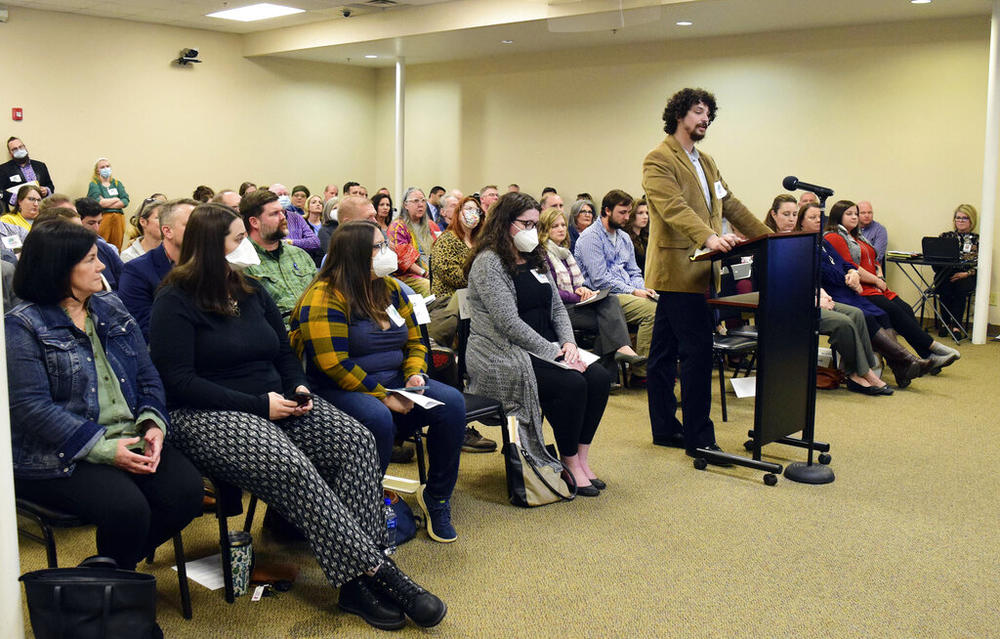
Caption
In a packed meeting room, Feb. 10, 2022, in Athens, Tenn., the McMinn County School Board heard from residents. A Georgia Senate bill would restrict school boards' ability to remove unruly parents from similar meetings.
Credit: Robin Rudd/Chattanooga Times Free Press via AP

